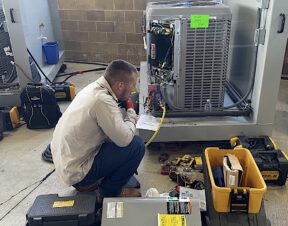Downtime is the bane of many businesses. When your operation goes down, it’s never a good thing. Every company aims to run a business that’s as efficient as possible. This means that it operates productively and without wasted time, effort, and resources. However, when downtime occurs, all of this becomes impossible. Unfortunately, operational downtime can be a regular occurrence. This is super frustrating and comes at a big cost. The financial losses caused by downtime can be huge. All that lost productivity and wasted materials can soon add up. If downtime causes missed deadlines, you may be hit with penalties from your clients. On top of all of this, there’s the risk of reputational damage caused by the delay. So, there’s certainly a ton of reasons to avoid downtime. The impact of downtime on manufacturers can be huge. It’s estimated that unplanned downtime costs manufacturing companies around $50 billion each year.

For many businesses, downtime seems an unavoidable inconvenience. When you’re reliant on machines and systems, it can seem like downtime cannot be escaped. But you don’t need to just accept downtime as a fact of life. Instead, you can take a proactive approach to manage downtime and prevent it from happening. Here’s how:
Reduce Human Error
Downtime is often blamed on equipment failure. Or even on machinery not being fit for purpose. Unfortunately, a lot of downtime is also caused by human error. We are all prone to making a mistake now and then. But a mistake on an industrial scale can have huge consequences. As a manager, it’s vital to do all you can to reduce the chances of this happening. But how?
One of the most successful ways to reduce human error is to revisit your business processes. Giving each process document a thorough review is absolutely essential. This allows you to identify areas where mistakes could be made. You can then update the process to minimize the risk of this happening.
Keep Up With Maintenance
Keeping up with the maintenance of your machinery and equipment is vital. This ensures that the equipment is safe to be used. Plus, the chances of equipment and machinery breaking or failing is hugely reduced.
When a piece of equipment or machinery stops working in your factory, this can have a huge knock-on impact. It can be like a domino effect has hit your production line. So, be sure to keep up with the maintenance and servicing of every part of your operation. This includes everything from getting the forklift battery checked and changed to ensuring machinery is correctly lubricated. These may seem like small jobs, but their impact on your business can be huge if they’re not completed.
Carry Out Inspections
As well as keeping up with maintenance and servicing, it’s also vital to carry out equipment inspections. Regular inspections mean that issues are spotted way before they become major problems. Designing a reporting process for issues to ensure they’re dealt with fast is essential to keep downtime at bay.




Join the conversation: